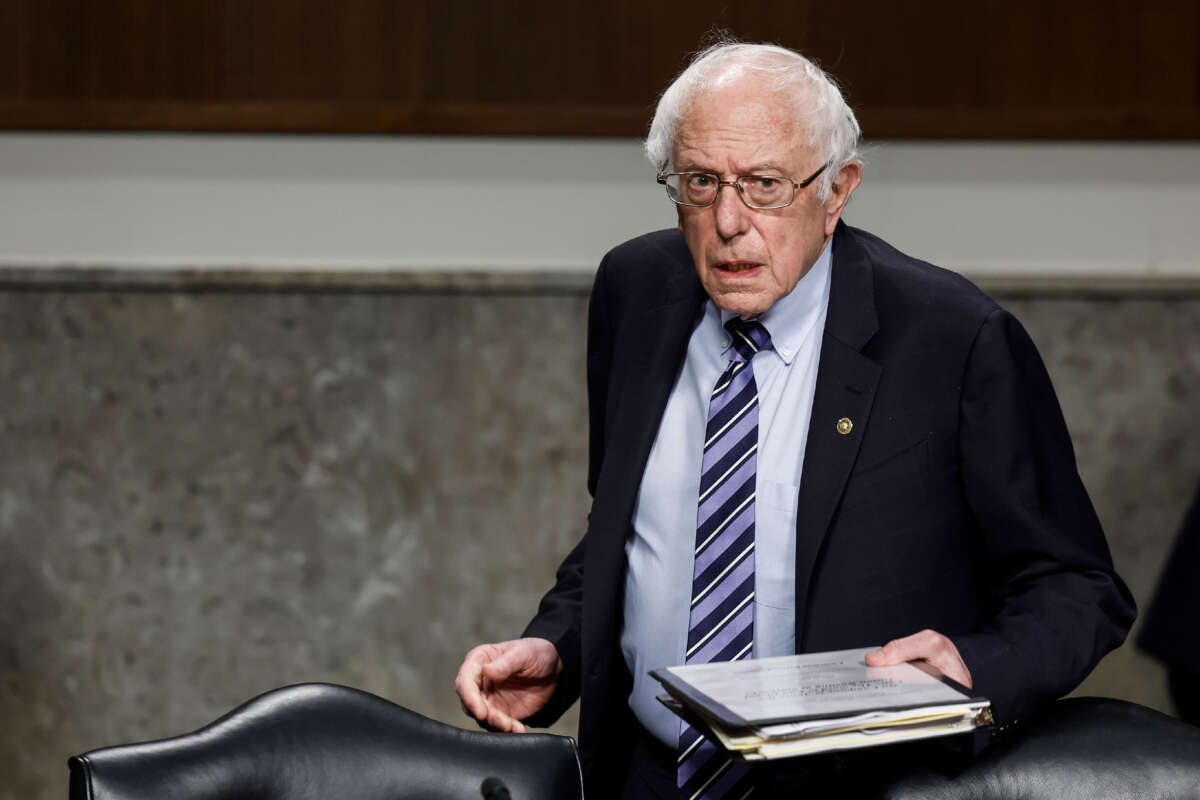With labor activity making headlines across the U.S. and wealth inequality at all-time highs, new polling finds overwhelming support among the public for a slate of pro-worker bills advanced by Sen. Bernie Sanders’s (I-Vermont) Health, Education, Labor, and Pensions (HELP) Committee last month.
According to polling by Data for Progress released Tuesday, all three bills passed by the committee last month enjoy at least over 70 percent support from the public, demonstrating the public’s interest in advancing workers’ rights despite conservative lawmakers’ refusal to do so.
One such bill is the Protecting the Right to Organize (PRO) Act, a landmark pro-union bill that’s been championed by labor advocates as a necessary step toward reversing decades of the suppression of workers’ rights by corporate leaders and lawmakers.
The poll finds strong support for the PRO Act, with 70 percent of voters in favor and majorities of voters across the political spectrum approving of the bill.
The poll also found that 77 percent of voters support Sanders’s and Rep. Rosa DeLauro’s (D-Connecticut) Health Families Act, a bill that would require employers with over 15 employees to provide seven days of paid sick leave to workers.
This proposal — which has become a key demand from labor advocates amid recent legislative and labor disputes — has support across the political spectrum, Data for Progress found, with 86 percent of Democrats, 74 percent of independents and 67 percent of Republicans in support.
The Paycheck Fairness Act similarly enjoys high support, with 77 percent in favor and similarly high bipartisan support, the poll found. The bill seeks to eliminate loopholes that allow women to be paid less than men in similar roles in the workplace, requiring employers to prove that any pay gaps between men and women are due to factors other than gender.
The polling comes as support for unions has hit a high. Last year, Gallup found that 71 percent of Americans approve of unions — the highest approval rating in 57 years. The labor movement, meanwhile, is making big strides; watershed union campaigns from workers at companies like Starbucks and Amazon have breathed new life into union efforts, while strike activity has been on the rise in recent years.
Just in recent months, union workers across sectors like media and health care have waged historic strikes, while 340,000 UPS workers are preparing to walk off the job over paltry offers for their newest labor contract.
At the same time, these workers are fighting an uphill battle. U.S. labor laws are severely skewed to favor employers, both in terms of benefits guaranteed to workers and rights granted to workers seeking to organize and fight back. The bills passed by the HELP Committee, particularly the PRO Act, would help alleviate some of these pressures and tip the scales, but they have little to no chance of passing with a Republican-controlled House and the Senate filibuster in the way of progress.
Speaking against the authoritarian crackdown
In the midst of a nationwide attack on civil liberties, Truthout urgently needs your help.
Journalism is a critical tool in the fight against Trump and his extremist agenda. The right wing knows this — that’s why they’ve taken over many legacy media publications.
But we won’t let truth be replaced by propaganda. As the Trump administration works to silence dissent, please support nonprofit independent journalism. Truthout is almost entirely funded by individual giving, so a one-time or monthly donation goes a long way. Click below to sustain our work.
